
We kindly inform you that, as long as the subject affiliation of our 300.000+ articles is in progress, you might get unsufficient or no results on your third level or second level search. In this case, please broaden your search criteria.

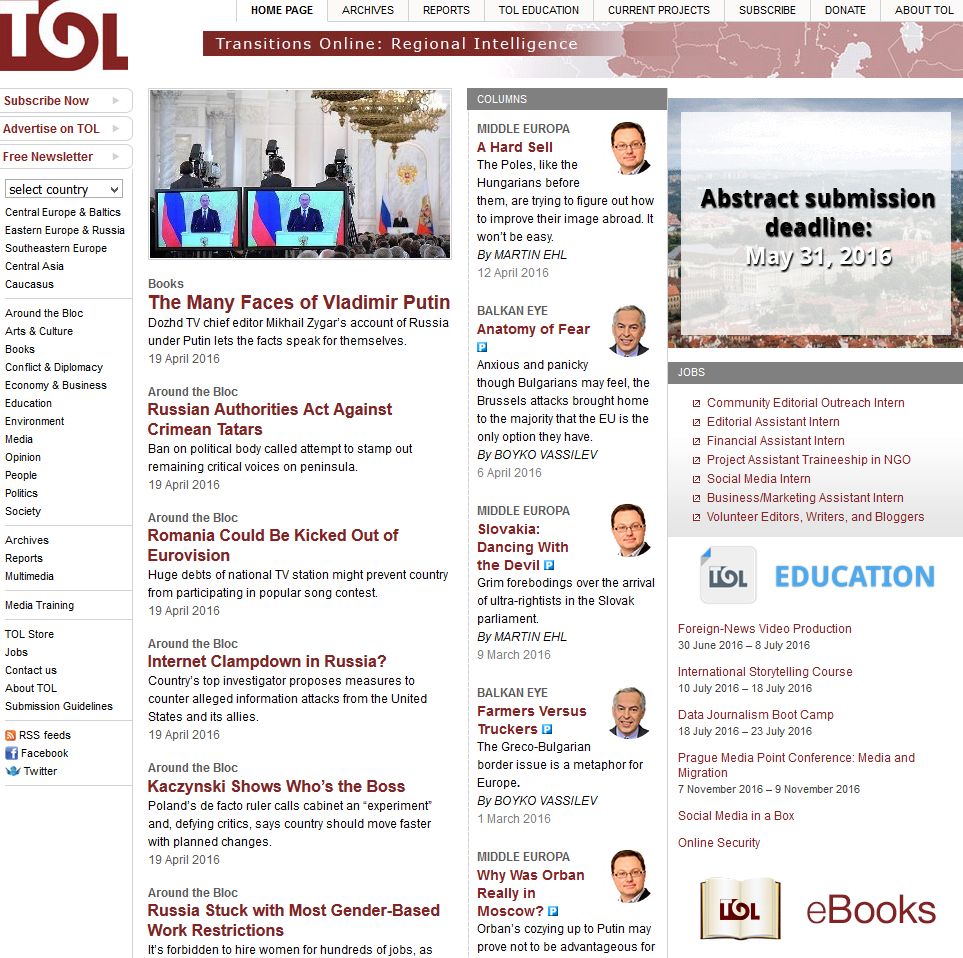
The Czech Republic is a rarity in lacking a common one-word form of its full name.
More...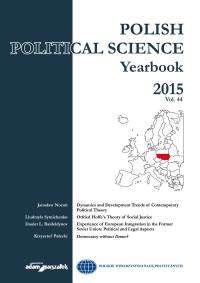
In article, author pay attention to the potential and scope of the impact of new forms of communication on the form and content of theoretical research. In principle, such an effect can be seen in two related, but different dimensions of analysis. In the first place it concerns the scope of the political theory, which is enriched with new areas and issues revealing previously unknown or not perceived problems, phenomena and processes that guide the interests of contemporary researchers. On the other hand, global mass communication techniques significantly shape, and thus change the existing forms of theoretical discourse and the structure of the theory itself. These changes in the perspective f plurality and decentralization of theoretical discourse subjects, as well as the emergence of new research areas which aspire to the status of scientific discipline, gain innovative importance especially from the point of view of the attempts to achieve meta-synthetic accumulation of social knowledge.
More...
The problem of justice, one of the key problems of contemporary political philosophy, is reconsidered in the light of a new paradigm: Оtfried Hoffe’s theory of transcendental exchange. The main research question is how this theory influences our understanding of the ways of formation of just moral and legal grounds in contemporary society. In order to understand justice adequately, it is important to regard it as personal responsibility, deeply related to attitudes of solidarity and recognition. There is an attempt to fuse moral and material grounds of social existence in order to overcome social injustice. Freedom and justice are rooted in the living world and are based on formal norms and procedures of morality and law. This gives us methodological grounds for understanding Hoffe’s philosophy of political justice, which regards freedom and justice as the main conditions of human existence.
More...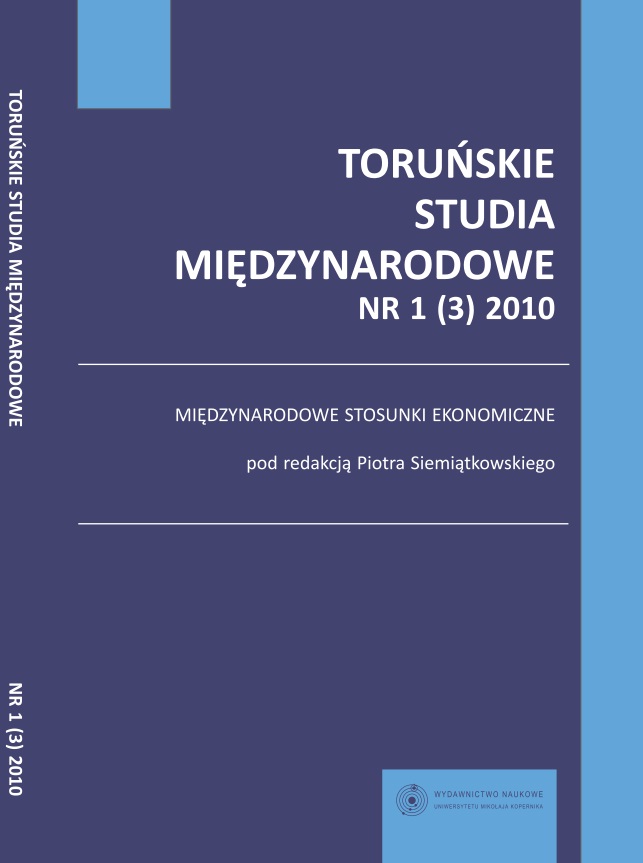
Having taken the advantage of the new geopolitical situation in the Central-Eastern Europe after the First World War, Poles and Ukrainians began to establish their nation-states. From November 1, 1918 Poles and Ukrainians waged war against each other on disputed territories: East Galicia, Volhynia and Podolia. The hostilities lasted till September 1, 1919 when the armistice was signed and Ukrainians were dislodged behind the Zbruch River. From the end of December 1919 Polish-Ukrainian political-military negotiations were held in Warsaw. They resulted in signing the Polish-Ukrainian military alliance. Thereupon on April 25, 1920 the Polish and Ukrainian Armies launched an offensive against the Red Army near Kiev. This alliance was denounced by the Polish side in November 1920.
More...
The German authorities strove to establish a consulate in Lviv almost from the beginning of the establishment of the diplomatic relations with Poland. Those intentions were opposed by the apprehensions of Polish side which feared that the establishment of the German consulate in this city would lead to an opening of the good relations between Germans and Ukrainians hostile-minded towards Poland. The German plan returned after the Anschluss of Austria in March 1938. Austria had the honorary consulate in the city which was taken over by the Third Reich in 1939. After some hesitation Polish government gave its assent to establish a German consulate in Lviv in June 1938 which had its jurisdiction over Voivodeships: Lwów, Tarnopol and Stanisławów.
More...
Liberalism and conservatism are one of the most important, influential and inspiring political theories of the modern epoch, in the post-traditional society of Europe. Both of them are specific and opposed ideological reactions to the crisis of socio-political order in England, followed by Glorious Revolution in 1688 and French Revolution in 1789. Therefore, it is of crucial importance to compare and analyze constitutive ideas of these two approaches, such as traditionalism, scepticism and organicism, which are the elements of conservatism, andliberal doctrine of universalism, rationalism in the sphere of politics, and specific understanding of human being and history. On the basis of the previous research, the author shows that some conservative ideas can help us to understand better specific weaknesses of liberal theory, referring to the idea of constant progress and melioristic philosophy of history, and the way they can be corrected.
More...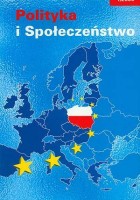
The paper presents various features of the European continent’s identity which distin-guish it from the other continents. It emphasizes cultural heritage of Europe which has been shaped over centuries by nation-states and shared traditions in philosophy, science, literature and art. It points out that within Europe there coexist in harmony permanent European values and cultural heritage of the particular European nations while a multi-cultural model of the continent’s identity is being created which preserves its “unity in diversity”. The European identity has been influenced primarily by Greek cultural-intellectual traditions, Roman civic and legal traditions as well as universalist Christian ideas. They have shaped the development of civilization in Europe and co-contributed to the more contemporary features of the European identity, such as: the rule of advanced democracies, the expanded system of protection of human rights or the development of the Conferen-ce/Organization of Security and Co-operation in Europe. The main features of the European identity influence the community of the whole continent, more strongly in its Western part, where new cultural ideas and new trends in art and European thought have been born from the ancient times to the Renaissance and the Enlightenment until nowadays. The budding identity of European integration has a special character. It unites the heritage of the continent’s nations with pan-European values in a new communitarian system which has no counterpart in other continents.
More...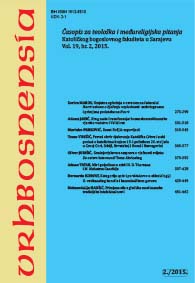
Research into the duties of the individual in the work of the American thinker, activist and naturalist Henry David Thoreau, and the leader of non-violent resistance to British colonial administration in India Mahatma Gandhi, offers theoretical insights into one of the most important phenomena of social science and the study of human kind. The opinions and active role of Thoreau and Gandhi represent a pragmatic attitude to the personification of human dignity, as a value that surpasses all other ideas, ideals and principles. This paper examines the actions and thinking of the individual as citizen while striving to highlight all the important aspects of 'civil disobedience', not as a license for anarchy but as the idea of civil duty. In this way, the two subjects of the article place the individual before the ideological concept of nation, race, class and party as the supreme value in itself. It is on this fundamental value that Thoreau and Gandhi build their own concept of peace.
More...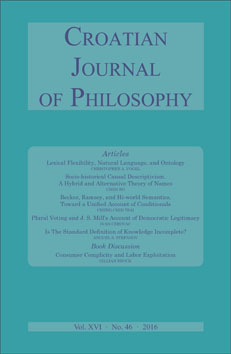
This paper clarifies some of the contested ideas put forward by John Stuart Mill by analyzing the reasons and arguments Mill used to support them and demonstrating how these ideas and arguments supporting them are connected into a coherent system. Mill’s theory is placed in wider explanatory framework of democratic legitimacy developed by Thomas Christiano, and is portrayed as a typical example of democratic instrumentalism—a monistic position that focuses on the outcomes and results of a decision-making process. Following this move, the focus is shifted on the understanding of political equality in Mill’s political thought. I claim that, contrary to some contemporary interpretations, Mill’s theory is based on a few fundamentally inegalitarian ideas. Finally, Mill’s view on the role of experts in democratic decision-making is analyzed and compared with contemporary theories advocating democratic expertism—Mill’s view is again portrayed as inegalitarian, both to the extent of setting political aims and creating methods for achieving these aims.
More...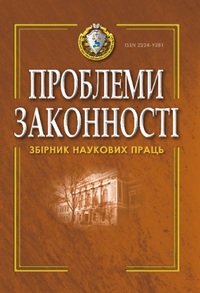
The article analyzes the specifics of the conceptualization of neoliberalism in the European and Anglo-American traditions. Neoliberalism, which emerged along with Keynesianism, offered its own vision of the problems of government regulation. The most significant areas of neoliberal discourse were developed in Austria (Vienna School: L. Mises, F. Hayek and others.), Germany (Freiburg School: W. Eucken, L. Erhard et al.), the UK (London School: Е. Kennan, L. Robbins et al.), the USA (Chicago School or «monetarism» F. Knight, G. Stigler, М. Friedman et al.).It is noted that quite deep fundamental differences can be found between German and Anglo-American neoliberal schools. For the German neoliberal direction a number of social issues which solutions had to be constantly in sight of public institutions became important enough. While the Anglo-American neoliberal schools focused their attention on purely economic entity, they were not interested in framework that would outline the entity’s behavior.Today the most acute problem in neoliberalism is that neoliberals are seriously suspicious relating to democracy, they are ready rather to give power to experts and elite of the society than accept the principle of rule by majority that democracy provides.
More...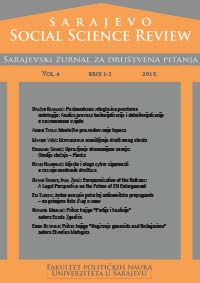
Ideology as a production of the living conditions of a social group is assumed not only as Marx says as an imagined relationship to the material relations reproducing living conditions but also as imagining a specific 'living space' with affirmative ideological concepts within which are found the figures and ideas of 'moral and immoral geography', geo-determinism and 'our place'. Ideological de-re-naming of space is one of the basic mechanisms by which an ideology seeks to 'naturalize' its existence through reproduction of awareness of events related to a specific topos whose name carries a certain ideological derivative. Even the postmodern condition is deeply interpellated with the ideological pre-formulation of place which remains the holder of identity habitus of human beings. It follows from this that the contemporary role of space in international relations is not marginalized, but re-positioned to fit the post-modern condition.
More...
The paper is dedicated to replies to Christiano’s criticism of Rawlsian public reason. Although Christiano’s criticism is successful in relation to one possible interpretation of the public reason view, a better and more fructuous interpretation of the public reason view is at the disposition of the Rawlsian project. This view of public reason is deliberately an idealization. It shows how public justification would function in a well-ordered society where citizens are committed to liberal values. The shared reasons relevant for public justification are represented by the ideal of society as a fair system of cooperation between free and equal citizens, as well as by the three features of the liberal conceptions of justice (basic rights and liberties, their priority, and the means to use them). In virtue of this view of public reason, it avoids Christiano’s objection of the utopianism of shared reasons, and it replies to the inequality argument, as well as to the generality and vagueness objection, and the inconsistency argument. The advantages of the proposal in the view of public reason, in comparison to Christiano’s proceduralist democratic proposal, are shown in the reply to the inequality argument.
More...
In his The Constitution of Equality: Democratic Authority and its Limits Christiano defends an idea that democracy has authority because it realizes public equality. According to Christiano, for realization of public equality there is no need for any restriction on the content of reasons we offer each other to justify laws and policies. In this paper I try to show that there are good reasons to think that boundaries of public reason can more deeply realize public equality in plural society and I also try to defend this view from some criticisms given by Christiano in his book.
More...
Thomas Christiano claims that one of the fundamental challenges democracy is faced with is the appropriate division of epistemic labor between citizens and experts. In this article I try to present and analyze Christiano’s solution from the perspective of social epistemology while utilizing the concepts and tools provided by this discipline. Despite fundamentally agreeing with his position, I attempt to propose a certain addition which might enrich this solution with additional epistemic and political responsibility. In the first part, I briefly elaborate on the relevance of social epistemology in discussions regarding the epistemic justification of deliberative democracy. In the second part, I contextualize Christiano’s view within discourses regarding social epistemology and identify his approach as reliability democracy due to his belief that truth-sensitive decision-making processes are ensured through the usage of reliable mechanisms (which allow for expertise to generate the epistemically best decisions possible). In the third part I attempt to provide arguments that support further elaboration of Christiano’s proposals in the direction of ensuring additional epistemic and democratic quality of decisions.
More...
The article explores Thomas Christiano’s account of the moral division of labor in democracy. Christiano’s incorporation of experts serves the purpose of alleviating the epistemic burdens of ordinary citizens in the decision-making process and decreasing the amount of work they would otherwise be required to take on in a modern democracy. The gist of my contribution to the debate is assessing whether Christiano’s account successfully tackles the issues brought about by cognitive biases that people suffer from in communicating their values in decision-making. I argue that Christiano’s notion of experts needs to be extended to choice architects, who possess the knowledge on methods for influencing choice. I also claim that choice architecture is a social fact that an informed deliberative democratic theory needs to deal with.
More...
I am deeply honored by the papers in this symposium. The authors have all devoted an enormous amount of energy and care to thinking about many of the ideas I have written about over the last twenty or so years. I am extremely grateful and humbled by their attention to my work. I have also found every paper to be deeply illuminating; in some cases, I have found myself rethinking my positions; in other cases, I see areas which demand more attention than I have given up to now; in yet other cases I have acquired a deeper appreciation for the challenges that my views and arguments face. In each case, I learned a great deal both from the papers and the discussions about earlier drafts of these papers that took place at a conference on Equality and Citizenship at the University of Rijeka on July 1 and 2, 2014.
More...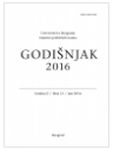
This article is a summary review of fundamental perils of democracy as shown in Alexis de Tocqueville’s Democracy in America. After introductionary notes about Tocquevilles’s life and importance as political writer, (I) the goal and structure of the book is briefly analized, then (II) central problem of tyrrany of the majority is shown, after which comes (III) emergence and significance of democratic customs (mœurs) as being constituitional for democratic institutions as well as (IV) their opposite in form of individualism, which finally (V) allows diminution of freedom through government centralization and despotism of public opinion, (VI) solution for which Tocqueville finds in civil associations.
More...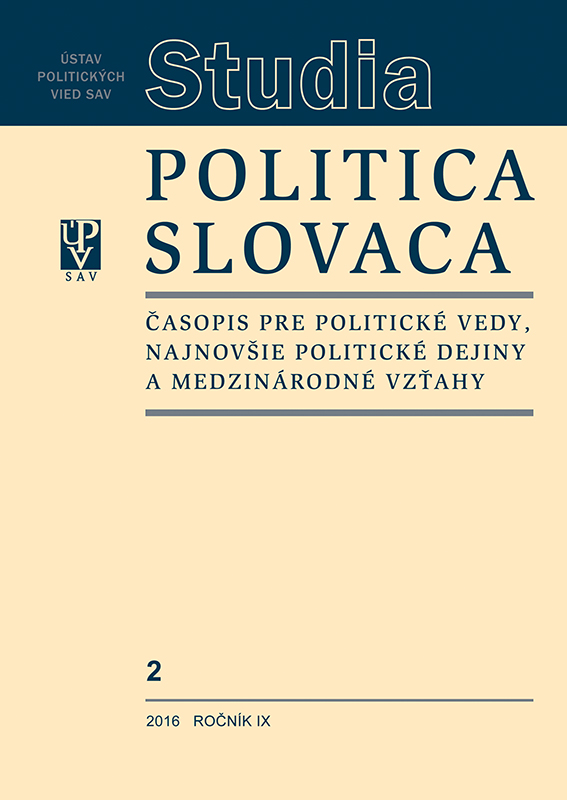
The article is a polemic on „Geopolitics“ – a work by Nikolai Starikov published in Slovakia in 2015. The first part of this article offers a critical outlook on geopolitics as such that reflects only a very narrow part of the reality of international relations, given, moreover, that in modern era, social, economic and technological factors are gaining the upper hand over geographical factors, whose significance diminishes. Starikov does not present any coherent geopolitical theory; his book is merely an aside into his own interpretation of Russian history and expansion of the Russian state. What is more, he does not shun open fabrications or deliberate misinterpretations. His work is essentially a propaganda, which aims to promote establishment of dictatorship in Russia and aggressive foreign policy focused on the occupation of foreign countries and war rivalry with other powers.
More...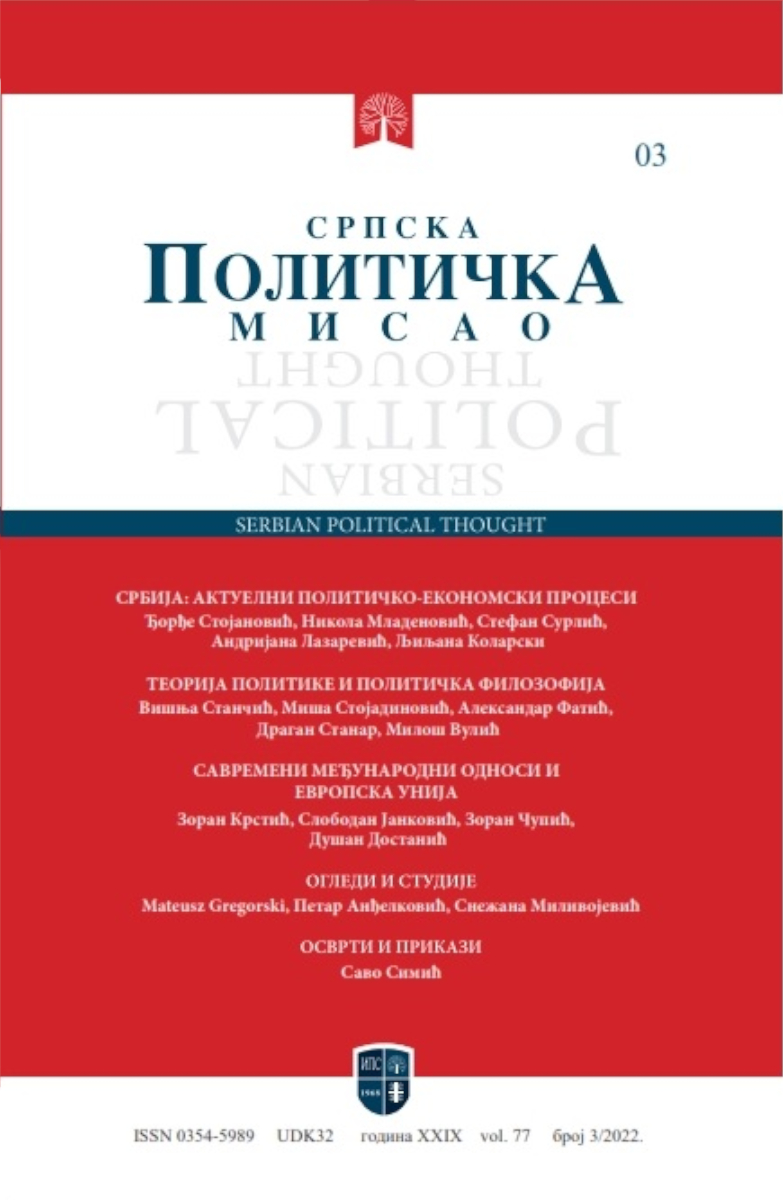
This study attempts to deconstruct the neocolonial status of Serbia. The paper claims that Serbia was selfcolonized through two cultural varieties: through the actions of Second Serbian, westernized liberal democratic elites and through the actions of First Serbian, traditionalized elites. It is shown how both discourses favor neo-imperial imperatives and agendas. The decolonizing solution can be seen in the hybridization of culture through the concepts of “culture of the Serbian soul” and “super-Serb”. The selfestablishment of decolonized Serbia is therefore only possible through a hybrid culture. It is a state in which both cultural diversity and cultural purity are rejected at the same time. The first because of turning Serbia into some exotic “reservation”, the second because the acceptance of some other cultural register is immediately classified as a national infection/contamination/intoxication. The hybridized narrative fable of the “culture of the Serbian soul” is a network of some “best” external representations/symbols/imaginaries and their explanations/reasons/arguments in the planetary (self)presentation of the Serbs, partially independent of personal expectations and feelings, i.e. the need to agree or disagree with them, partially corrected, filtered and supplemented by passing through the prism of internal beliefs, projections and meanings, and in the function of defending and creating the construct of an ideal, perfected, selfauthenticated and poeticized “super-Serb”. We are defending something that we simultaneously create and that creates us, an unlocked, non-restrictive “fairytale/alchemical patriotism” of the auto narratives of the best of Us in our own eyes and/or in the eyes of Others. All in all, hybridity is an instrument of resistance to one-dimensional identities. Namely, through the introduction of a multitude of plural identities, it enables the creation of the Third Space, which is located between the domestic culture and the cultural algorithms/requirements of the neo-imperial masters (Bhabha 1994). The genuineness of hybridity lies in the manner of their amalgamation/fusion. Only in this way is it possible for the self-colonized Serbian subject to achieve a spontaneous/authentic cultural perspective/base. It is a space where Americanization (American-British-EU cultural dictation), Russification (Russian cultural dictation) and Sinoization (Chinese cultural dictation) are exposed/included in the discourse of Serbization. In a word, Serbia needs to be Serbified.
More...